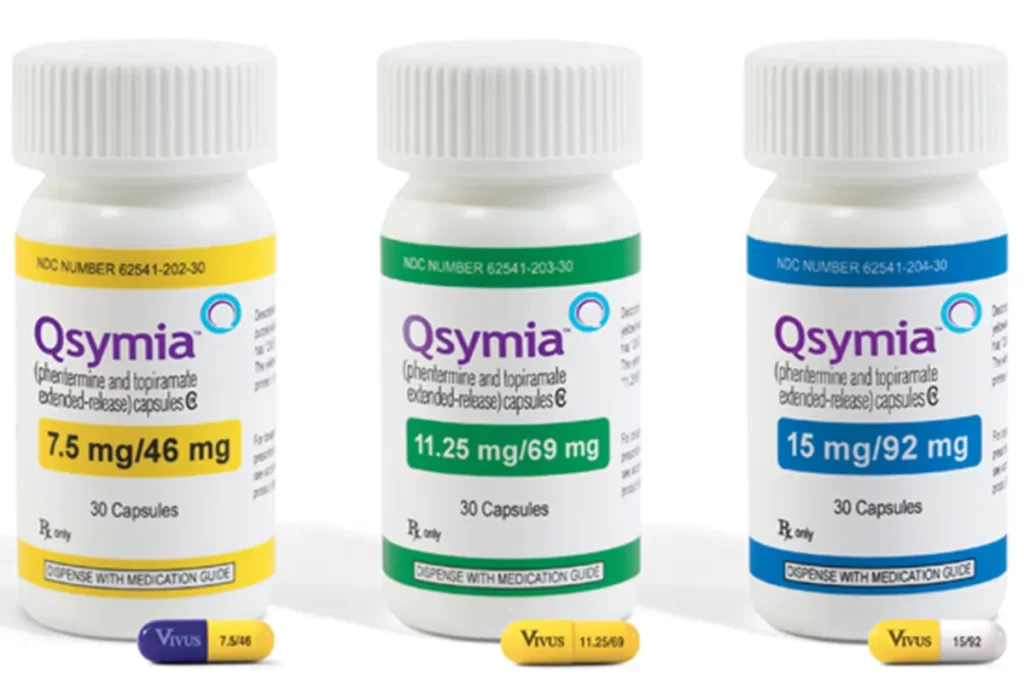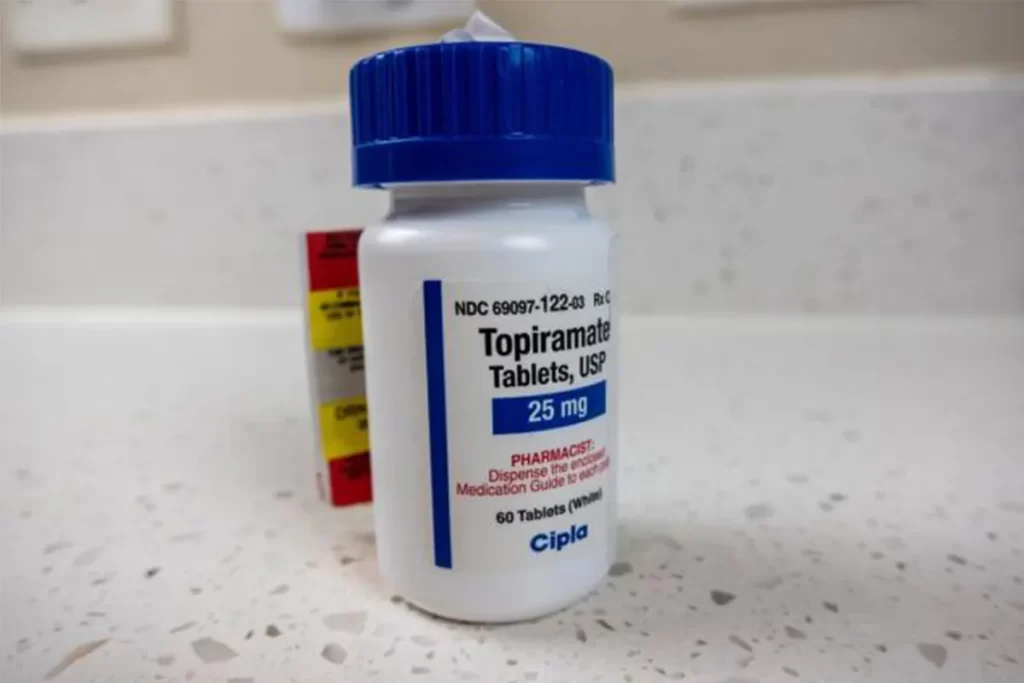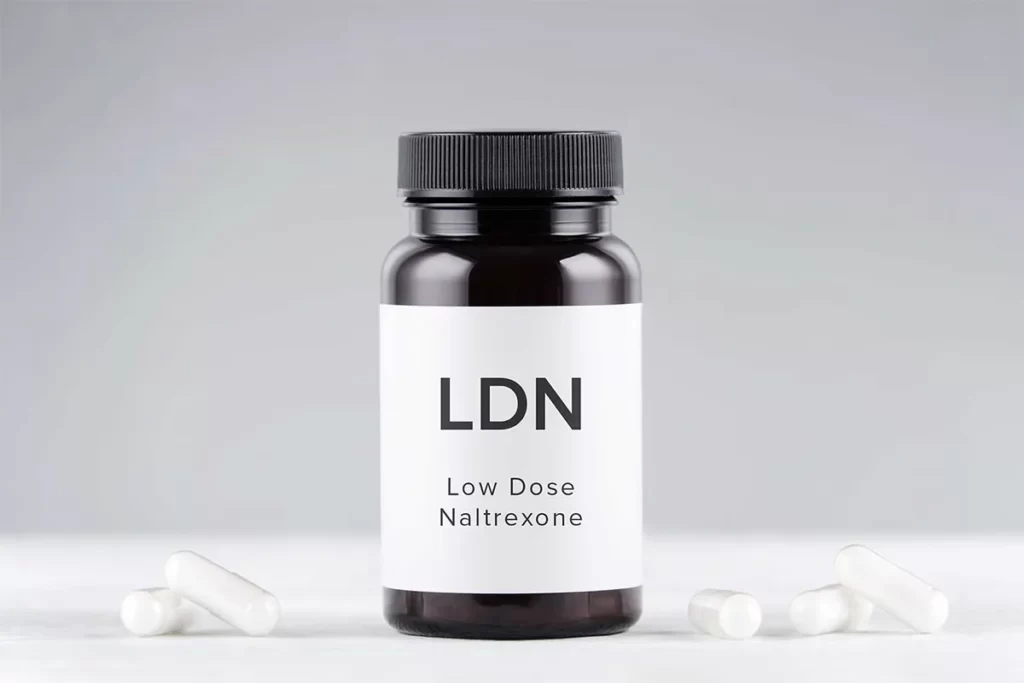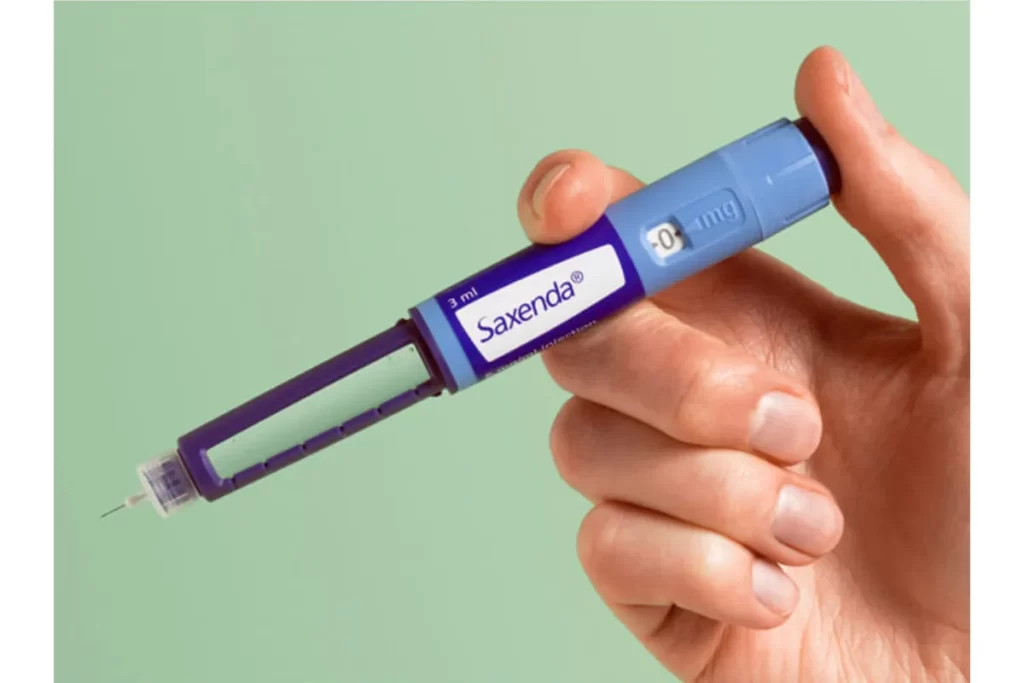Rybelsus Vs Ozempic: What's the Difference and Similarities
-
 Written by
Michael J. Ormsbee
Written by
Michael J. Ormsbee
- LAST UPDATED October 18, 2023
In today’s healthcare landscape, two medications have risen to prominence: Rybelsus and Ozempic. Both, while distinct in their modes of administration and composition, are vital players in the realm of diabetes management and weight loss. Rybelsus Vs Ozempic has become a popular point of comparison for patients and healthcare providers alike, as they navigate the best options for individual needs. Diabetes, a growing global concern, demands effective solutions. Both these medications address this demand, but understanding their nuances is crucial for optimal outcomes. As we delve deeper into this article, we aim to shed light on the intricacies of these medications, highlighting their importance and role in diabetes care and weight management.
Understanding the Basics: Rybelsus Vs Ozempic
The realm of diabetes management and weight loss is ever-evolving, with new medications and treatments emerging frequently. One of the recent debates that healthcare professionals and patients often find themselves engaged in is Rybelsus Vs Ozempic. Both of these medications have been game-changers in their respective fields, but what exactly sets them apart? Let’s dive deep into the fundamental properties of these drugs.
Rybelsus: What is it?
Rybelsus, also known by its generic name semaglutide, is an oral medication primarily used for the treatment of type 2 diabetes. As part of a class of drugs called glucagon-like peptide-1 (GLP-1) receptor agonists, Rybelsus functions by mimicking the actions of the body’s natural GLP-1. This results in the stimulation of insulin production when blood sugar levels are high and a decrease in the amount of glucose being produced by the liver, ultimately helping to regulate blood sugar levels.
Basics of Rybelsus
Rybelsus’s oral administration sets it apart from many other diabetes medications that require injections. While it’s designed for once-daily use, it’s important to understand that Rybelsus is not for the treatment of type 1 diabetes or diabetic ketoacidosis. The efficacy of Rybelsus in lowering blood sugar levels makes it a promising medication, especially for those who are needle-averse. It also offers weight loss benefits, which can be a boon for many individuals with type 2 diabetes, as weight management plays a crucial role in diabetes care.
Rybelsus vs Metformin
Metformin has long been the first line of defense against type 2 diabetes. When comparing Rybelsus Vs Ozempic, it’s also essential to understand where Rybelsus stands in relation to Metformin. While both drugs aim to regulate blood sugar levels, they do so in different ways. Metformin works by reducing the amount of sugar the liver releases into the blood and increasing the sensitivity of muscle cells to insulin. Rybelsus, as mentioned, mimics the function of GLP-1. While both can lead to weight loss, Rybelsus tends to offer more significant weight loss benefits. However, the choice between them often comes down to individual needs, potential side effects, and, of course, the physician’s recommendation.
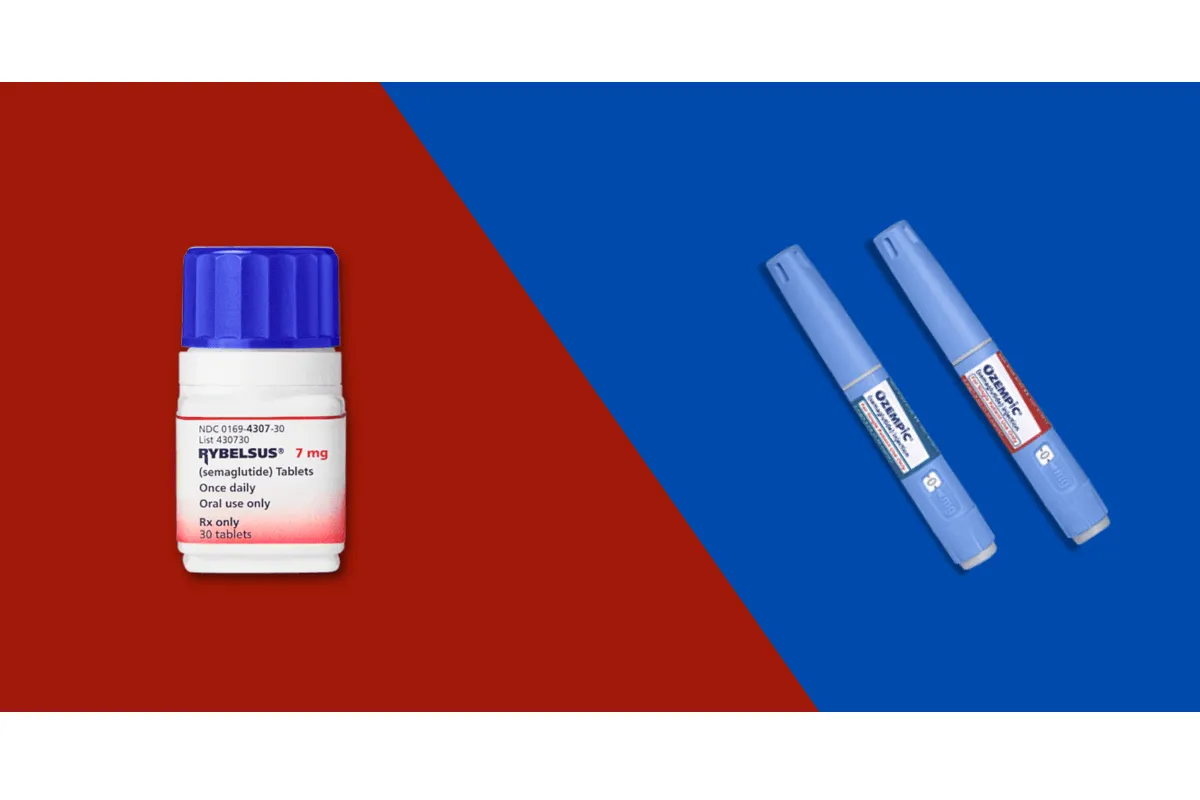
Rybelsus vs Jardiance
Jardiance (empagliflozin) is a sodium-glucose co-transporter 2 (SGLT2) inhibitor. The primary difference between Rybelsus and Jardiance lies in their mechanisms of action. While Rybelsus mimics GLP-1, Jardiance works by causing the kidneys to get rid of more glucose from the bloodstream. Both medications can lead to weight loss and have cardiovascular benefits, but their side-effect profiles vary. Choosing between them typically depends on the patient’s unique health profile and the desired outcomes.
Ozempic: What is it?
Ozempic, like Rybelsus, contains semaglutide. However, it’s an injectable medication. As another member of the GLP-1 receptor agonist family, it plays a similar role in stimulating insulin production and reducing glucose production by the liver. One of the distinct differences, beyond the mode of administration, is that Ozempic is often lauded for its significant effects not only on blood sugar regulation but also on weight loss.
Is Ozempic the same as Insulin?
A common question that arises in the Rybelsus Vs Ozempic conversation is the distinction between Ozempic and insulin. While both are injectable medications for diabetes, they are not the same. Insulin is a hormone produced by the pancreas that allows cells to use glucose for energy. People with diabetes might not produce enough insulin or use it effectively, requiring insulin therapy. Ozempic, on the other hand, isn’t insulin but rather mimics the function of GLP-1, as described earlier. It enhances the body’s natural ability to regulate blood sugar levels without directly supplying it with insulin.
When analyzing Rybelsus Vs Ozempic, the distinction is clear. Both are powerful medications in the fight against type 2 diabetes, each with its unique benefits and administration methods. The decision between the two, or their comparison with other diabetes medications, hinges on a variety of factors, emphasizing the importance of personalized medical advice and care.
Efficacy in Weight Loss & Diabetes Management: Rybelsus Vs Ozempic
The ongoing debate surrounding Rybelsus Vs Ozempic often centers on their respective efficacies in both weight loss and diabetes management. As the prevalence of type 2 diabetes continues to rise, the need for effective treatments becomes paramount. Simultaneously, the link between obesity and diabetes brings weight management into the equation, making the role of these medications doubly crucial. Let’s delve deeper into their functioning mechanisms and comparative efficiencies.
How do they work?
At their core, both Rybelsus and Ozempic are glucagon-like peptide-1 (GLP-1) receptor agonists. They mimic the function of the body’s natural GLP-1, which is responsible for stimulating insulin production post-meal and for suppressing the release of glucagon. By doing this, they help regulate blood sugar levels and also slow down the process of gastric emptying. The latter has a satiating effect, which indirectly aids in weight loss by making patients feel fuller for longer.
Rybelsus vs Ozempic weight loss
Given the increased attention on the obesity-diabetes nexus, the weight loss benefits of both these drugs are of significant interest.
Does Rybelsus help people lose weight?
Yes, clinical trials have shown that Rybelsus can lead to weight loss. This isn’t just because of its effect on gastric emptying but also due to the fact that improved glycemic control can aid in metabolic regulation, which can, in turn, influence weight. The extent of weight loss can vary among individuals, but it’s not uncommon for patients to experience a noticeable reduction in weight, especially when combined with a balanced diet and regular exercise.
Will Ozempic help people lose weight?
Similar to Rybelsus, Ozempic has demonstrated weight loss benefits in patients. In some studies, the weight loss attributed to Ozempic has been even more substantial. The injectable nature of Ozempic might contribute to its slightly enhanced efficacy in this area, though individual results can vary. Again, optimal results are often seen when the medication is part of a comprehensive weight management plan.
Ozempic vs Rybelsus vs Wegovy: A comparison
Wegovy (semaglutide) is another GLP-1 receptor agonist, but it’s approved specifically for weight management. In the battle of Rybelsus Vs Ozempic, introducing Wegovy into the mix further complicates the landscape. While all three have shown weight loss benefits, Wegovy’s higher dosage and focus on obesity treatment can lead to more significant weight reductions in some patients. However, it’s essential to note that Wegovy might not be suitable for all, especially those looking primarily for diabetes management.
Rybelsus, weight loss reviews
Many patients have shared their experiences with Rybelsus, particularly regarding weight loss. While individual experiences can be varied, a common theme emerges: consistent weight reduction over time. Some users have reported losing up to 10% of their initial body weight over several months. These reviews, although subjective, offer real-world insight into the drug’s potential benefits beyond clinical trial environments.
Other comparisons:
Rybelsus vs Ozempic vs Mounjaro
Mounjaro isn’t as widely recognized as the other two in the Rybelsus Vs Ozempic debate. However, it’s important to acknowledge all potential options. While comprehensive data on Mounjaro is still emerging, initial reviews suggest it might offer benefits in both diabetes management and weight loss, though direct comparisons with Rybelsus and Ozempic remain inchoate.
Rybelsus vs Ozempic vs Jardiance
As touched upon earlier, Jardiance operates differently as an SGLT2 inhibitor. Its mechanism focuses on the kidneys, allowing them to excrete more glucose. In terms of efficacy, all three medications can be potent in their right, but the choice often comes down to individual patient needs, potential side effects, and specific desired outcomes.
The Rybelsus Vs Ozempic debate is multifaceted. Both medications have proven their mettle in diabetes management and weight loss, with each having its unique advantages. As research continues and more patient experiences come to light, the nuances between these drugs will become even clearer. What remains undeniable is their collective potential in battling two of today’s most pressing health challenges: diabetes and obesity.
Dosage and Dosing Differences: Rybelsus Vs Ozempic
When discussing the efficacy of medications, it’s essential to understand that the dosing, and the way in which dosages are administered, plays a significant role in the therapeutic outcomes. In the Rybelsus Vs Ozempic conversation, their dosing differences and suggested dosages emerge as central themes. Both are at the forefront of diabetes management and potential weight loss assistance. However, understanding their unique dosage instructions and how they contrast is paramount for healthcare professionals and patients alike.
Suggested dose for both medications
Rybelsus:
Rybelsus is an oral medication, usually initiated at a lower dose to allow the body to acclimate. Typically, a patient might begin with 3 mg once daily for 30 days. After this introductory period, the dosage may increase to 7 mg daily. Depending on individual needs and how the body responds, this can be further adjusted to a maximum dose of 14 mg daily.
Ozempic:
Ozempic, as an injectable medication, has its dosing regimen. Initially, patients often start with 0.25 mg once a week for a month. After this, the dosage typically increases to 0.5 mg once a week. For those who need additional glycemic control, it can be titrated up to 1 mg once a week, based on clinical judgment and patient response.
Rybelsus vs Ozempic dosage differences
A cursory glance at the Rybelsus Vs Ozempic dosing guidelines illuminates several differences:
- Administration Method: Rybelsus is taken orally, while Ozempic is injectable.
- Frequency: Rybelsus is a daily medication, whereas Ozempic is a weekly dose. This difference can influence patient adherence, with some finding daily pills more manageable and others preferring a once-weekly injection.
- Dosing Progression: Both drugs start at a lower dose, which is escalated based on the patient’s response. However, the intervals and maximum dosages differ.
How to Use Rybelsus and Ozempic
Rybelsus:
Patients should take Rybelsus on an empty stomach when they wake up. It’s crucial to swallow the tablet whole and not to crush or cut it. It should be taken with just a half glass of water, and no other food or drink should be consumed for at least 30 minutes afterward. Following this protocol ensures optimal absorption of the medication.
Ozempic:
Before injecting, it’s essential to check the pen visually for particulate matter or discoloration. Ozempic is administered subcutaneously, typically in the abdomen, thigh, or upper arm. It’s crucial to rotate the injection sites to minimize the risk of lipodystrophy. After using, the pen should never be shared, even if the needle is changed, to prevent potential cross-contamination.
Switching between Rybelsus and Ozempic: When and How?
The decision to switch between these two medications should always be based on clinical judgment, patient preferences, and individual therapeutic needs. However, when considering the Rybelsus Vs Ozempic conundrum in terms of transitioning:
From Rybelsus to Ozempic: After the last Rybelsus dose, it’s recommended to wait at least 24 hours before administering the first Ozempic injection. This ensures the oral medication has sufficiently cleared the system.
From Ozempic to Rybelsus: Given Ozempic’s once-weekly dosing, it’s generally advised to wait seven days post the last injection before starting Rybelsus. This transition period allows for optimal medication overlap without risking overtreatment.
While the efficacy and potential benefits of both Rybelsus and Ozempic are well-acknowledged, it’s essential to comprehend their dosing distinctions for optimal therapeutic outcomes. The Rybelsus Vs Ozempic debate extends beyond just their effectiveness, delving deep into the realms of patient preferences, ease of use, and individual medical needs. With the knowledge of their dosing differences and guidelines, healthcare providers can make informed decisions tailored to each patient’s unique circumstances.
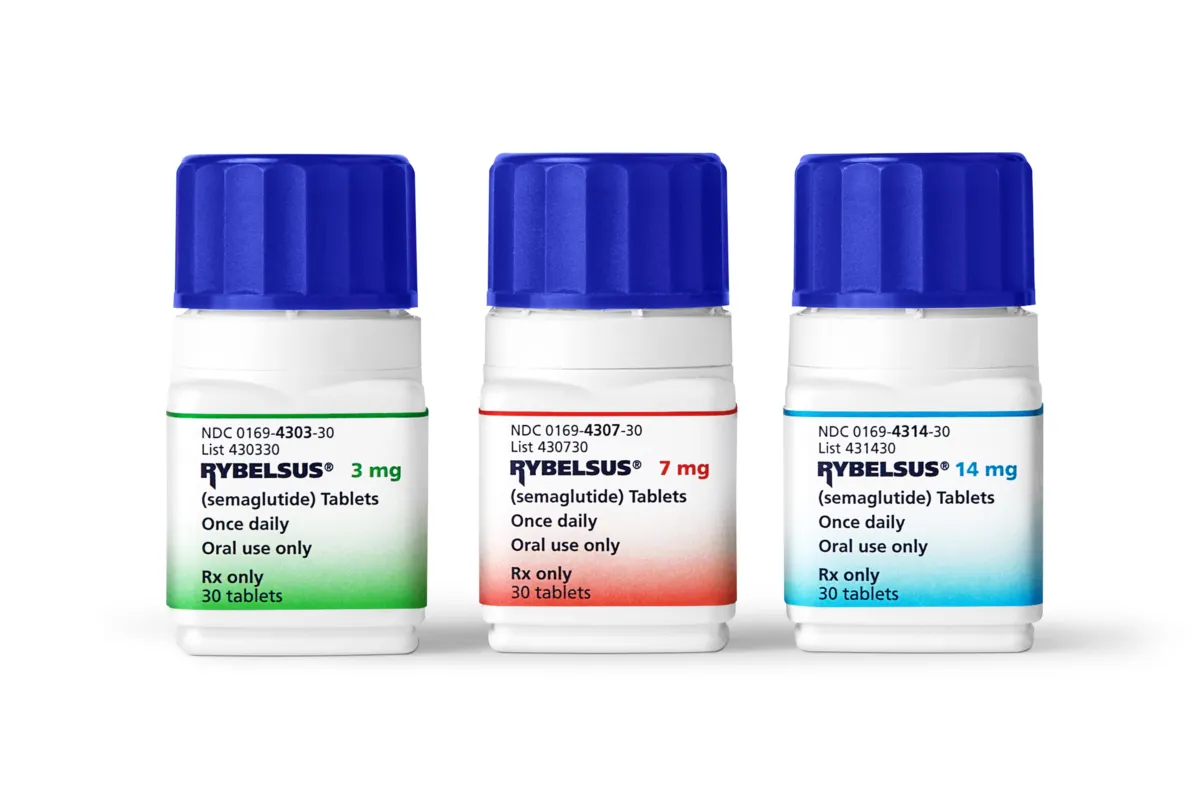
Side Effects: What to Expect – Rybelsus Vs Ozempic
Whenever a patient starts a new medication, understanding the potential side effects is as vital as knowing its benefits. The question of Rybelsus Vs Ozempic is no exception. Both are groundbreaking in their approach to diabetes management, but like all medications, they come with their own set of side effects. In this segment, we’ll delve deep into the side effects associated with these two drugs, allowing patients and healthcare providers to make informed decisions about treatment.
What side effects might Rybelsus cause?
Gastrointestinal Issues: Rybelsus can cause stomach problems in some people. These may include nausea, vomiting, diarrhea, abdominal pain, and loss of appetite. These side effects are most common when you first start taking the medication and may decrease over time.
Decreased Kidney Function: There’s a possibility that Rybelsus might affect kidney function, especially in patients who already have kidney problems or are at risk.
Thyroid Tumors: In animal studies, medicines similar to Rybelsus have shown to cause thyroid tumors. Though it’s unclear if Rybelsus causes thyroid tumors in humans, it’s essential to be aware of this potential risk.
Pancreatitis: There have been instances where patients on Rybelsus developed pancreatitis. Symptoms can include severe abdominal pain, vomiting, and an increased heart rate.
Common Ozempic Side Effects
Digestive Disturbances: Just like Rybelsus, Ozempic can cause GI disturbances. These often include nausea, vomiting, diarrhea, and constipation. Again, these effects are often more pronounced when initially starting the medication.
Skin Reactions: Some patients have reported skin reactions at the injection site, such as rashes or itchiness.
Headache and Fatigue: These are less frequent but still possible side effects. Patients might feel more tired than usual or experience headaches.
Risk of Hypoglycemia: Especially when used in combination with other diabetes medications, Ozempic can increase the risk of hypoglycemia (low blood sugar).
Serious side effects for both medications
While Rybelsus Vs Ozempic may spark debates regarding their efficacy and dosing, their potential severe side effects are eerily similar:
Thyroid C-cell Tumors: Both medications have a boxed warning regarding the potential risk of thyroid C-cell tumors, including cancer.
Pancreatitis: As previously mentioned, there’s a risk of developing inflammation of the pancreas, a condition that requires immediate medical attention.
Vision Changes: Rarely, these medications can affect vision due to swelling in the back of the eye.
Kidney Problems: Both drugs can potentially affect kidney function, which can be more pronounced in those already at risk.
Rybelsus vs Ozempic GI side effects
The gastrointestinal (GI) side effects debate within the Rybelsus Vs Ozempic discussion is of utmost importance as these are the most commonly reported issues:
Rybelsus: The oral nature of Rybelsus might contribute to its GI side effects. Nausea and diarrhea are frequent complaints, often subsiding after the body adjusts to the medication.
Ozempic: Similar to Rybelsus, Ozempic users might experience nausea and diarrhea. However, due to its injectable nature, Ozempic might also cause some discomfort or reactions at the injection site, which can be considered an extension of GI symptoms for some patients.
It’s worth noting that individual responses vary. Some might find Rybelsus more tolerable, while others might favor Ozempic due to fewer GI disturbances.
The side effects associated with both Rybelsus and Ozempic can be diverse and vary in intensity from one individual to another. As the Rybelsus Vs Ozempic discussion evolves, it’s crucial for patients to be equipped with this knowledge. Regular check-ups and open communication with healthcare providers are crucial when starting or switching between these medications. Knowledge of potential side effects not only prepares patients for what to expect but ensures that any unusual symptoms are quickly addressed for optimal health outcomes.
Cost Implications and Alternatives – Rybelsus Vs Ozempic
The Rybelsus Vs Ozempic debate extends beyond just their medical efficacy and side effects. As with any medication, understanding the cost implications is crucial for both patients and healthcare professionals. This ensures that individuals can access necessary treatments without being burdened by potential financial constraints. In this segment, we explore the cost landscape of both Rybelsus and Ozempic, offer insights into their price differences, and suggest alternatives and strategies to mitigate expenses.
How much does Rybelsus cost?
Rybelsus, being one of the newer entrants in the market, often carries a higher price tag than some of the older diabetes medications. On average, without insurance or discount offers, a one-month supply of Rybelsus might range from $800 to $1,000, depending on the dosage and location. However, it’s essential to consider that prices can significantly vary based on factors such as location, pharmacy, and any discounts or rebates that may apply.
Price comparison between Rybelsus and Ozempic
When it comes to Rybelsus Vs Ozempic in terms of pricing:
Rybelsus: As previously mentioned, the price for Rybelsus is approximately $800-$1,000 per month. However, with insurance and potential manufacturer’s discounts, many patients might pay significantly less.
Ozempic: Being an injectable, Ozempic tends to be more expensive than oral medications. A one-month supply of Ozempic might cost anywhere from $900 to $1,200. Again, the final price can vary based on multiple factors, including available rebates or insurance coverage.
When comparing the two, Ozempic tends to be slightly more expensive. However, the difference might be negligible for some, especially if insurance or discounts apply.
Cheaper alternative to Rybelsus
For those looking for cost-effective solutions, there are alternatives:
Metformin: One of the oldest and most prescribed drugs for type 2 diabetes, Metformin is often significantly cheaper than Rybelsus. Though their mechanisms of action differ, Metformin can be an effective solution for many.
Sulfonylureas: Another class of oral diabetes drugs, sulfonylureas like Glipizide or Glyburide, might be considered by some as alternatives. They are generally cheaper but come with a different set of side effects and efficacy levels.
While these alternatives might be cheaper, it’s essential to understand that they might not offer the same benefits or work similarly to Rybelsus. Always consult a healthcare provider before making medication switches.
How to save on Rybelsus and Ozempic
Navigating the cost implications of Rybelsus Vs Ozempic can be challenging, but there are ways to potentially reduce expenses:
- Manufacturer Discounts and Savings Cards: Both Rybelsus and Ozempic’s manufacturers often offer savings cards or discount programs for eligible patients, significantly reducing out-of-pocket expenses.
- Insurance: Ensure that your insurance plan covers your chosen medication. Sometimes, it might be worth considering a plan switch during enrollment periods if another plan offers better coverage for the drug.
- Pharmacy Shopping: Prices can differ from one pharmacy to another. Tools and apps like GoodRx can provide a price comparison across different pharmacies in your area.
- Patient Assistance Programs: For those with limited income, patient assistance programs sponsored by pharmaceutical companies or non-profits might provide the medication at a reduced cost or even free.
- Bulk Purchasing: Some pharmacies or programs offer discounts for purchasing a multi-month supply at once.
The Rybelsus Vs Ozempic debate will continue in various medical contexts, the financial aspect cannot be overlooked. As with all medications, patients and healthcare providers should be equipped with the knowledge of costs, available discounts, and potential alternatives. A well-informed decision can ensure not just good health outcomes but also financial peace of mind.
Reviews and Real-World Feedback – Rybelsus Vs Ozempic
The medical world often emphasizes the importance of clinical trials, rigorous studies, and peer-reviewed research. While these are undeniably vital in understanding a medication’s efficacy, real-world feedback provides invaluable insights into how these medications work in day-to-day settings. In this section, we dive deep into the world of user reviews and real-world feedback for Rybelsus and Ozempic to paint a clearer picture of what potential users might expect.
What do reviews for Rybelsus and Ozempic have to say?
1. Rybelsus Reviews:
Positives:
Improved Blood Sugar Control: Many users report that Rybelsus has significantly helped them achieve better blood sugar levels, often within the recommended range.
Weight Loss: A notable portion of Rybelsus reviewers mentions weight loss as an added advantage. Some have mentioned dropping significant pounds over a few months.
Ease of Use: Being an oral medication, many appreciate the convenience of taking Rybelsus compared to injectables.
Negatives:
GI Side Effects: Digestive disturbances, particularly nausea, seem to be a common complaint among some users.
Slow Onset: Some patients mention that it takes a few weeks before they started seeing substantial improvements in their blood sugar levels.
Cost: The financial burden of Rybelsus is a deterrent for some, especially those without robust insurance coverage.
2. Ozempic Reviews:
Positives:
Potent Blood Sugar Management: Users often praise Ozempic for its potent effects in managing blood sugar levels, with many achieving their target A1C.
Significant Weight Loss: One of the standout features in many reviews is weight loss. Some users report shedding a substantial amount of weight within the initial months of use.
Weekly Dosing: The once-a-week dosing schedule is seen as a blessing by many, as it reduces the need for daily medication intake.
Negatives:
Injection Site Reactions: Some users experience redness, itching, or mild pain at the injection site.
GI Disturbances: Much like Rybelsus, Ozempic users also report gastrointestinal side effects, primarily nausea.
Initial Side Effects: A few reviewers mention experiencing side effects more prominently during the first weeks, which eventually subsided as their bodies adjusted to the medication.
Rybelsus Vs Ozempic: Commonalities in Reviews
Efficacy in Blood Sugar Management: Both medications, according to reviews, seem to be highly effective in achieving and maintaining desired blood sugar levels.
Weight Loss: A striking similarity between the two in reviews is the potential for weight loss. This benefit is especially praised by users who have struggled with weight issues alongside their diabetes.
Digestive Side Effects: Both Rybelsus and Ozempic users frequently mention gastrointestinal side effects. While not everyone experiences these, they seem to be a common theme.
Divergences in User Experiences:
Administration: The most apparent divergence between Rybelsus Vs Ozempic in reviews is the method of administration. Many users appreciate Rybelsus for its oral intake, while others find Ozempic’s once-a-week injection more manageable than daily medications.
Onset of Effects: Some Rybelsus users feel that the medication takes a bit longer to show pronounced effects compared to Ozempic.
Real-world feedback presents a mixed bag of experiences. While many celebrate the benefits of both Rybelsus and Ozempic, others express concerns or disappointments, mainly relating to side effects or costs. As with all medications, personal experiences can vary widely based on individual health profiles, expectations, and other factors.
Nevertheless, the overwhelming sentiment from reviews seems to be positive for both medications. Patients frequently report improved health outcomes, better quality of life, and increased satisfaction in managing their diabetes. It’s essential to remember that while these reviews provide crucial insights, a healthcare professional’s advice is indispensable when making decisions regarding medication choices.

FAQs about Rybelsus Vs Ozempic
Which is better, Rybelsus or Ozempic?
The determination of which medication is "better" between Rybelsus and Ozempic depends on the individual's specific needs, health profile, and personal preferences. Both are GLP-1 agonists, but they have different administration methods: Rybelsus is taken orally, while Ozempic is an injectable. Some patients might prefer the convenience of a pill, while others may appreciate the once-a-week injection schedule of Ozempic. Clinically, both have shown efficacy in controlling blood sugar levels in Type 2 diabetes patients. It's crucial to consult with a healthcare provider to determine the most suitable option based on individual circumstances.
Which is cheaper, Rybelsus or Ozempic?
The cost of Rybelsus and Ozempic can vary based on factors such as location, pharmacy, insurance coverage, and available rebates or assistance programs. Typically, injectable medications like Ozempic tend to be more expensive than oral treatments, but this is not always the case. To ascertain the most cost-effective option, it's advisable to compare prices at local pharmacies and consult with insurance providers to determine out-of-pocket expenses for both medications.
Is Ozempic and Rybelsus the same for weight loss?
Both Ozempic and Rybelsus have been shown to assist with weight loss in clinical trials, in addition to their primary purpose of managing blood sugar levels in Type 2 diabetes patients. However, the degree and consistency of weight loss can vary between individuals. Some patients might find more substantial weight loss benefits with one medication over the other. The underlying mechanism of action is similar since both are GLP-1 agonists, which can help suppress appetite and slow gastric emptying. However, the extent and rate of weight loss may differ for each individual.
What is better than Ozempic for weight loss?
Several medications are available for weight loss, and the efficacy can vary based on individual factors. Aside from Ozempic, there's Wegovy (a higher dose of the same active ingredient as Ozempic), Rybelsus, and other GLP-1 agonists. Additionally, there are other classes of weight loss medications, such as orlistat, phentermine, and bupropion-naltrexone combination. The "best" medication for weight loss depends on the person's health profile, the presence of other medical conditions, the medication's side effect profile, and personal preferences. A healthcare provider or endocrinologist can offer guidance on the most effective and appropriate weight loss strategies, including medications.

